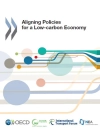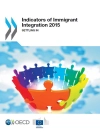In the past, neo-tribalism in a Western context has been feared as leading to blindness or irrationality. In today’s business world, tribalism represents a conscious separation of the individual ego for the good of the community. This is the key to understanding the success of the most innovative businesses in the 21st century.
Tabla de materias
PART I: UNDERSTANDING IDENTITY Section I: Identity and the Self Who I Am? The Quest for Human Happiness; Know Yourself: Mode D’emploi Self Identity in Contemporary Science Self-identity in Today’s Business World Section II: Identity and Community Do I Belong? Identity and Community Collectivities’ Rights at the Political Debate Communal Identity in the Twenty-first Century Communal Identity in Today’s Business Context Section III: Identity and Gender Snow White Revisited Mother Earth and Father Spirit; Reconciling Primitive Archetypes in Human Experience Nature or Nurture? Man and Women’s Brains Socially Gendered Roles in the Public and Private Spaces Gender Identity in the Business World Today PART II: IDENTITIES IN ACTION Section IV: Identity and the Market: Is there Life Outside the Market? What we Produce, Where and for What Purpose The Value of Things Changes in Organizations, from Multinationals to Global Networks Identity and the Market PART III: IDENTITY IN CIVILIZATION Section V: Moving Civilizations The Rhythm of History Human Civilizations and Identity A Mediterranean Tale Section VI: Global Testimonies Jay Standish – Symbionomics – Seattle – USA Edgard Gouvira – Institute Elos, Sao Paolo- Brazil Wael Omar – Cairo, Egypt Ay?egül Güzel, Istanbul, Turkey Nisrine – Khartun Sudan Hong Kong Epilogue: Managing Conflicting Identities in Organizations Lessons Taken A Model to Manage Conflicting Identities in the Organization
Sobre el autor
CELIA DE ANCA Professor of Global Diversity and Director of the Centre for Diversity in Global Management, at IE Business School, Spain. She is a leading expert in diversity in the corporate world and globally renowned in both the academic and corporate worlds. She is a regular speaker at international conferences and publishes many articles in specialist magazines. Professor de Anca organises training and mentoring programmes for female entrepreneurs in Latin American and Islamic countries, and has run and managed educational projects in the Middle East for 10 years. She is a member of the Ethics Committee of Morgan Stanley’s Ethics Fund, Spain and a member of the International Scientific Committee of the University Euromed in Marseille, France.












